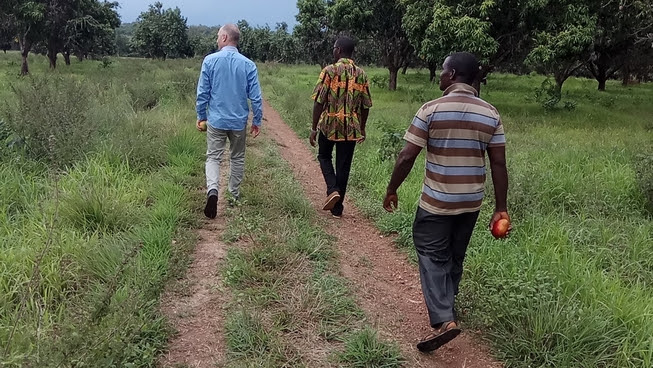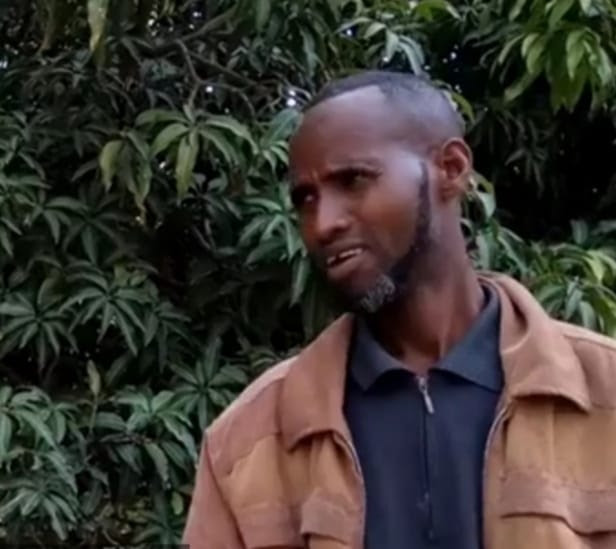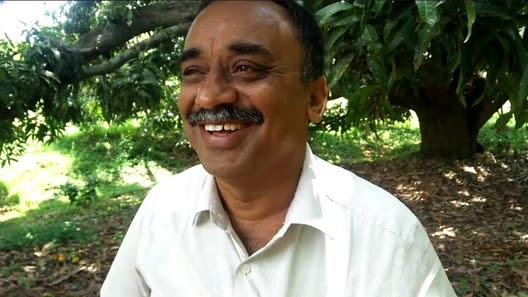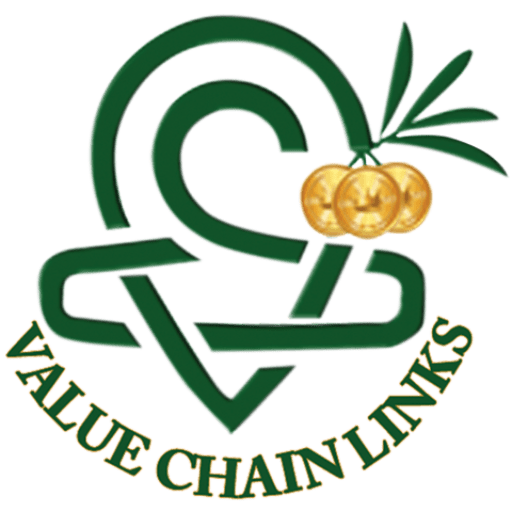WHY SHOULD WE MEET FARMERS IN THE FIELD AND HOW IT CAN HELP US IMPROVE THE AGRO-INDUSTRY?

by dr. Nimrod

*In my articles, I address general phenomena. Mention of a country/continent is used for illustration purposes only.
Not many CEOs of companies that market agri-produce travel to their company’s operation sites to get a direct, first-hand, and impartial impression of how things are going, especially if those sites are thousands of km away from their headquarter.
I regularly travel to see and meet in person and overlook our operations wherever we are active worldwide.
I continue doing so even now during the COVID-19 pandemic, and although the need for quarantine each time I am back.

It seems that thanks to those trips and personal face to face meetings, we have been able to successfully design and develop the disruptive business model, the Green Valley, which is made to promote agriculture through the acceleration of exports.
While designing the Green Valley model, I met with various stakeholders in the agricultural industry.
Nevertheless, among all stakeholders, in my perspective, the farmers were always the core factor for which we work and focus our efforts.
START BY UNDERSTANDING
If our efforts are all meant to improve farmers’ livelihood, then it is our responsibility to understand them better.
There are several ways to understand the farmers better.
(1) Data analysis based on data from various sources.
(2) Asking for the opinion of farmers (direct) and others (indirect).
(3) Observation of non-verbal behaviors, including the tune of speaking, gestures, the look of the farm, etc.
While I use all three methods to improve my understanding of farmers, it is the third type that reveals most of the essential and critical information that I value.
As the son of a farmer and a former farmer, I can learn more ןn a 15-minute personal meeting with a farmer, on his farm, than many months of exchanging emails.
For example, his farm’s mere appearance teaches me about the farmer’s characteristics and professionalism level.

FIRST MEETING
I am in Africa; it is nearly 9 am, and we are after two hours trip on a bumpy road. We finally arrive at the mango farm.
Gladly I get out of the car to face the hot-humid air of the early hours. I know that soon it will get much hotter. At least, the air is fresh, and we are in the middle of a mango orchard.
I stretch my legs while noticing the farmer is approaching me. He strolls, with a weary look on his face, worried, as if all the troubles of the world are carried on his shoulders.
We shake hands as we reach each other. He has the rough hands of a farmer, and I have delicate hands. Both hands are strong, and so is the handshake; strong and warm. A small smile finally appears on his face.
We find a shady place, away from the sun, where we can peacefully talk.
I present myself and ask him if he is ready to share information about his farm, including yield, quality issues, marketing, problems, challenges, hopes, and desires.
I listen carefully and write down notes for later. Here and there, I intervene and ask him a clarifying question.

At first, the farmer was suspicious and overwhelmed.
It is the first time in his life that a CEO of a Western company, who is also a scientist owning a Ph.D., a developer, a farmer, and a businessperson, is visiting his farm in person, and showing so much interest in him and his farm.
He is not accustomed to such people showing interest in his work, activities, worries, and hopes, let alone asking him so many questions.
He is still not sure of how much to share and how much to reveal. So he settled in giving short answers with limited information.
As time passes, he noticed that I am familiar with his situation, and he begins to trust me, my professionalism, and my good intentions.
He gains confidence, and his answers are becoming longer. Now he is sharing much more of his thoughts, experiences, fears, anxieties, and even some of his hidden hopes.
YOUR VOICE IS WELL HEARD
I take some time to summarize what I have heard, seen and noticed so far.
This mango grower is very proud of his produce, its taste, and its quality. His eyes light up whenever he talks about his farm and his mangoes

In contrast, when he talks about daily reality, he sounds frustrated, helpless, angry, and sometimes even bitter. He feels that –
» No one cares about him.
» He works hard all year but is continuously unsure about the business results and his financial future.
» He sells the produce to his regular marketers but eventually loses or barely balances his costs.
» Everybody is talking about ‘solutions for fruit flies,’ but there is no solution. For years he has been spending hundreds of euros per hectares in spraying, trapping, sanitizing, to see that once again, the fruit flies destroyed half (and sometimes more) of his mangoes.
» He uses all those costly and labor-intensive fruit fly control activities, although he is aware of their poor results. But what else can he do?
» Because of the high fruit fly infestation, he must hurry up and finish the harvest before the rainy season, even if the fruits are unripe and not ready.
» His marketing options are limited to only a few channels, all to the domestic market.
» He wants to export but cannot, because of many reasons, including; fruit flies, quality issues, unpredicted yield and quality, regulatory challenges, and inadequate marketing channels.
» He is eager to become a Green Valley member and enjoy its many benefits to its mango growers, like the fruit fly management protocol (the Fruit Fly Certified Trade Zone).
The grower is not rushing to celebrate the unborn success. Deep inside, he is afraid, unsure, and does not believe he can change his future overnight.
A long time ago, he stopped counting the times when experts, distributors, industry leaders, or government representatives stood up tall and promised: “a winning solution that would eliminate the fruit fly problem.“
He would then buy those “winning solutions,” and time after time, he ended up disappointed, finding that nothing changed, and fruit loss remained as high as before.
» But he is not giving up, he is a fighter, and he is responsible for feeding his family. He sees me on his farm, he sees the professionality, the self-security, and he already heard the rumors of the excellent results.
He hopes that maybe this time, things will turn for the best. He will be satisfied even with a 50% reduction of the fruit fly infestation.
AS THE DAY PASSES
As we leave the farm, I feel immersed in deep feelings of empathy for the farmer. It is a shame that he has reached the present state and has every right to feel the way he does.
I think to myself; this mango grower is professional, educated, motivated, and doing everything he was told. He could be and should be the owner of a thriving agri-business. I know he can be successful.
But he is not!
Why?
Because he lacks the necessary tools required for a farmer to become commercially successful. The worst part is that none of it, none, is his fault or under his control.
I learned that his yield is lower by 50% to 90% than the optimum he could have.

As if this is not enough, there are many more problems; he is losing half of his yield to fruit flies. His overall produce quality is insufficient, his fruits are labeled but not branded, and he lacks access to premium markets to get a premium price.
I still have a hard time containing the fact that half of his yield is infected with fruit flies. To reach export markets, it will be necessary to reduce infestation by 99%.
Which business owner could survive under such circumstances?
No one.
I admire this farmer’s determination and ability to survive under such nearly impossible unfavorable conditions.
I then struggle to detach my feelings from his current situation; it is too hard to bear.
It is clear that to turn his mango farm into money making machine; he needs all the help and support he can get in improving each of the inhibitors (yield, quality, brand, marketing channels, and fruit fly management). That will take years and endless effort.
Meanwhile, I am satisfied knowing we had a successful day, as we finished hours of planning, designing, preparations, and installations on the farmer’s farm.
This farmer just secured his future and on the right track to success, as he is officially a member of the Green Valley program.
FOLLOWING MEETING
Three months passed since my first visit to his farm. I have been updated every week with reports, but it’s not the same as being in person and seeing with your own eyes.
Anyone who is engaged in the field of fruit growing and marketing should never be complacent.
If you are leading a marketing campaign that includes fruit fly management under a novel protocol, then you better be alert, worried, and to some extent, even a little paranoid. This is your only way to keep your reputation and survive to see success.
I’m confident in the technology, protocol, professional team, and myself, but I am also a bit paranoid. I am always ready to meet the unexpected and come up with a solution when there is a need.
It is a hot and humid morning as I step out of the car, but I feel welcome and at home this time.
I see the farmer walking towards me. I walk towards him, and as I do so, I notice a wide smile smeared across his face. Somewhat reminiscent of the Cheshire Cat.

I sigh in relief; if he’s smiling, then things couldn’t be too bad, I think to myself.
Then comes the handshake, this time even stronger, warmer, followed by a hag and laughter.
Unlike the first time, now he keeps talking, flooding me with information and his self-impressions. All along, his face shines from happiness.
He says to me that in the past, at this time of the year, he would have already seen lots of infected fruit on the tree and the ground, maybe 30% and maybe more.
This is precisely how it is now on his neighbor’s farm, but not on his farm. A little insecure, he announces that he did not detect any infested fruits on his farm so far.
I say to him, “it seems like you were not expecting this kind of success?“
With a shy smile, he replies, “Indeed. I wanted to believe you, but because of my experience, I couldn’t. Now I am shocked; I can’t believe my eyes. I never expected such an extreme change in such a short time.“
I smile inside, and also outside. It is always good to meet a happy and smiling farmer, especially after our last meeting, where I left him worried and preoccupied with existential anxiety for his business future.
I’m happy but still apprehensive and focused on what I should do next.
From my professional experience, I know that the farmers, and not even the staff working with me, can identify all the potential problems and the difficulty of detecting fruit fly infestation.
There is only one way to make sure all is well; I need to check in person.
I say to the farmer, with a smile, “It seems that you still don’t believe, and I didn’t see it yet. Why don’t we go and check the fruits together so we can both sleep better tonight?”
We head to the orchard; we are about to perform rigorous personal monitoring of vital indicators.
The hours pass unnoticed, and the checks and monitoring are finally over. I smile at the farmer while letting him know he can sleep well tonight; we only found one infested fruit.
That means that; I still know how to find fruit fly infestation, and more importantly, the infestation is less than 0.1%. This is way lower than the 25% infestation the farmer hoped for and was ready to accept.
Now I can finally relax.
The farmer cannot contain his happiness. Now that he has an official figure, he seems unbelieving.
Again and again, he thanks me. This time the smile is coming from deep inside him and flow outside. His smile catches up with mine as we both smile. What immense happiness!
I remind myself that this is precisely why I got into this business from the first place and why I founded Biofeed and developed the Green Valley package.
Is there greater happiness than the opportunity to grant a person the chance for better livelihood, honor, faith in a better future for him and his children while doing good to the environment and consumers’ health?
